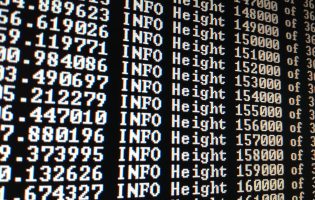New Book Chapter from AGI Senior Cyber Fellow Dr. Sarah Lohmann
Redesigning Organizations: Concepts for the Connected Society, edited by Denise Feldner, is now available. The book offers readers a deeper understanding of the cyberspace, of how institutions and industries are reinventing …

Between Nationalism and Multilateralism: A Renewed Approach for Transatlantic Economic Engagement
Issue Brief 59 The Ancient Greeks invented the concept of the Golden Mean, and the idea that “the truth lies somewhere in the middle” is a well-rooted one. Given the …

Peter Rashish on Trade Pact between Mercosur and EU in Argentina’s Perfil
Una perspectiva estratégica: Los benficios de un modelo alternativo basado en normas consensuadas y bien establecidas was published in Argentina’s Perfil newspaper on August 29, 2019. An English translation is …

Blockchain: Chained Up by Legal Issues
The German government acknowledges that interest in blockchain technology is growing rapidly and new applications are emerging almost daily. Blockchain as a technology even made it into the German CDU/SPD …
U.S. pins hopes on new European leader to rescue trade talks
Peter Rashish, director of the geoeconomics program at the American-German Institute, cautioned against viewing the U.S.-EU trade talks as “a case of French interest in protecting its agriculture and a …
Recent Authors
AGI provides knowledge, insights, and networks as tools to solve the challenges ahead.
Support Our Work
Cooler Climes, Cooler Heads: The Bretton Woods Conference at 75
As the nation’s capital swelters in an atmosphere that seems to confirm President Kennedy’s quip that “Washington is a city of Southern efficiency and Northern charm,” it might be restorative to look both …
Episode 11: Inequality and Social Division: An Economic Perspective
Globalization and technological change have reshaped the world economy and have been vital sources of economic growth and prosperity in the United States and Germany for a decade. Yet polarization …
Metin Hakverdi, Distinguished Visitor
AGI is pleased to welcome Metin Hakverdi as a Distinguished Visitor during the summer of 2019. He is a Member of the German Bundestag from the Social Democratic Party. Mr. …

More than Trade Policy: U.S. and German Responses to the New Global Economy
Event Summary Professor Marcel Fratzscher, the president of DIW Berlin—a leading European research institute—and one of Germany’s top economists, spoke at a recent AGI lunch event on “More than Trade …

U.S. and German Energy Policy at a Crossroads? The Transatlantic Partners and the Future of Energy Cooperation
The U.S. and Germany are moving in fundamentally different directions with their energy policies. Germany has embarked on its “Energiewende,” an energy strategy based on renewable energy and energy efficiency …

U.S. and German Energy Policy at a Crossroads? The Transatlantic Partners and the Future of Energy Cooperation
I therefore propose that we have a discussion in the climate cabinet about how we could reach the goal of being CO2 neutral by 2050 and the discussion should not …

Germany’s Strategy of Balancing China and the U.S. and Bolstering Competitiveness
Looking to balance China and the U.S. has made Peter Altmaier a very busy man these days. The German Federal Minister for Economic Affairs and Energy is traversing Silicon Valley …



